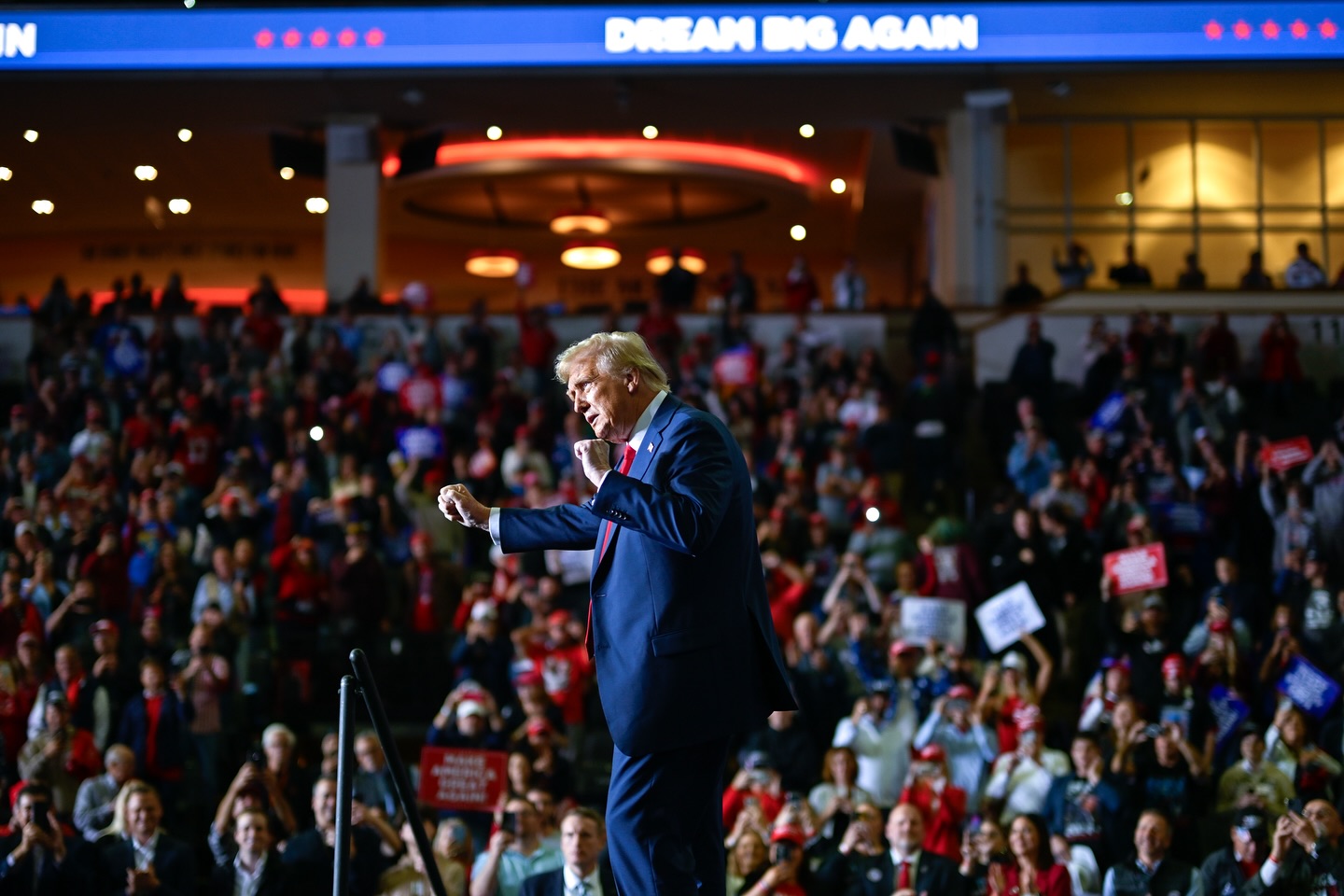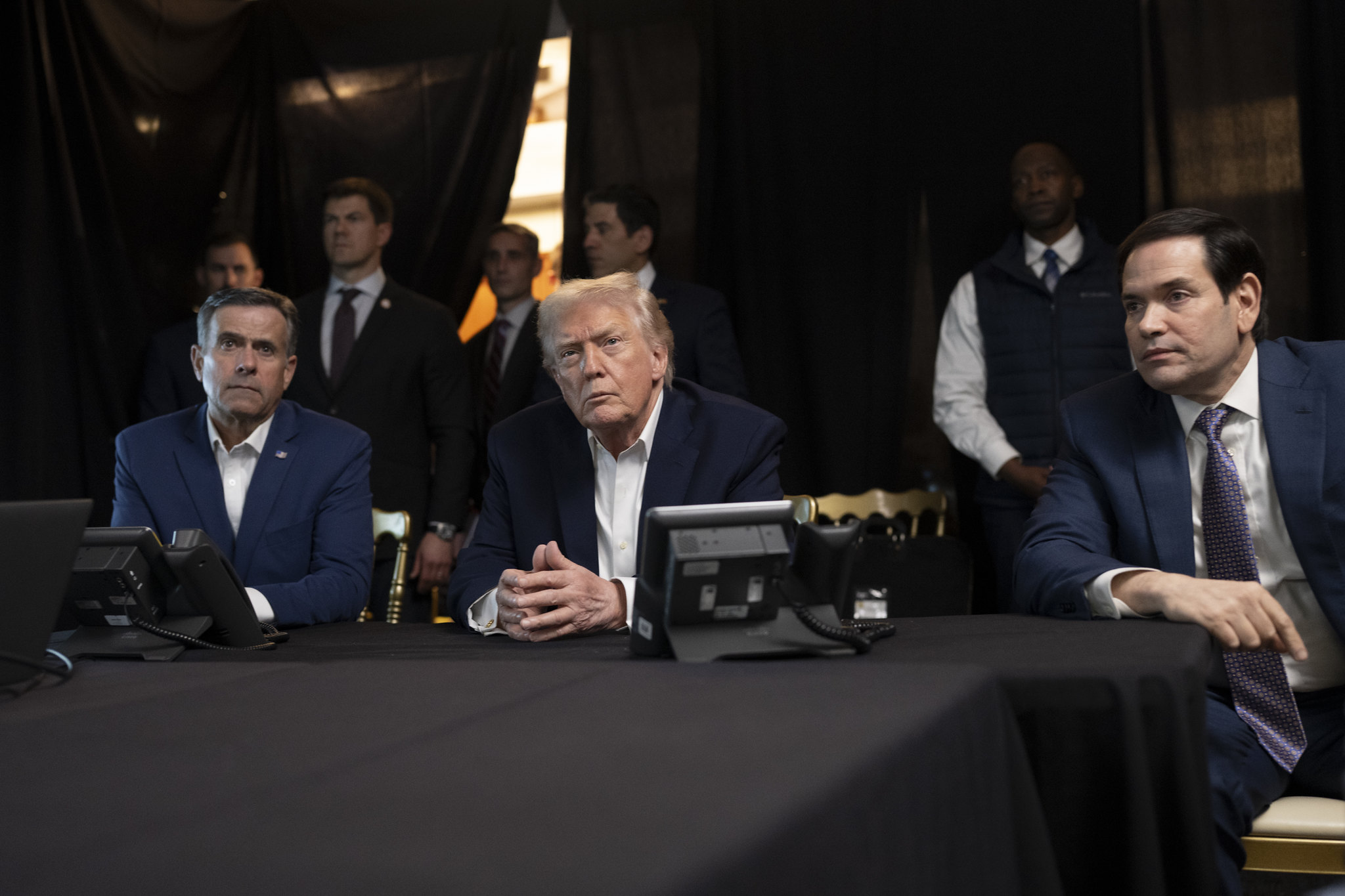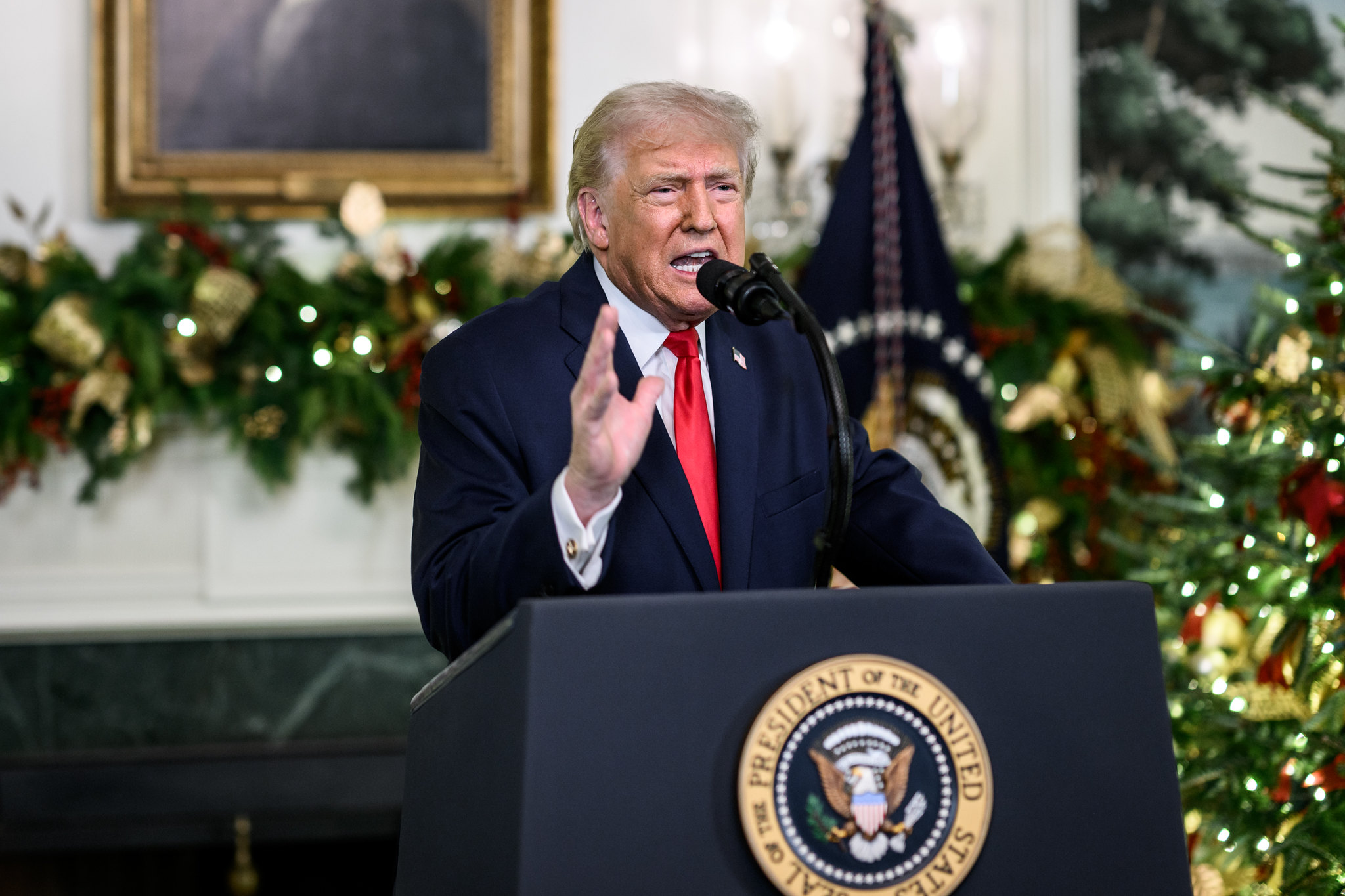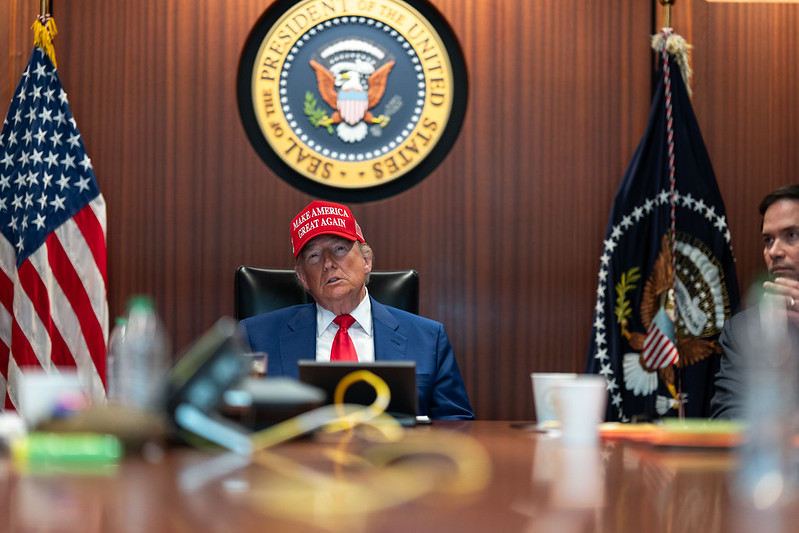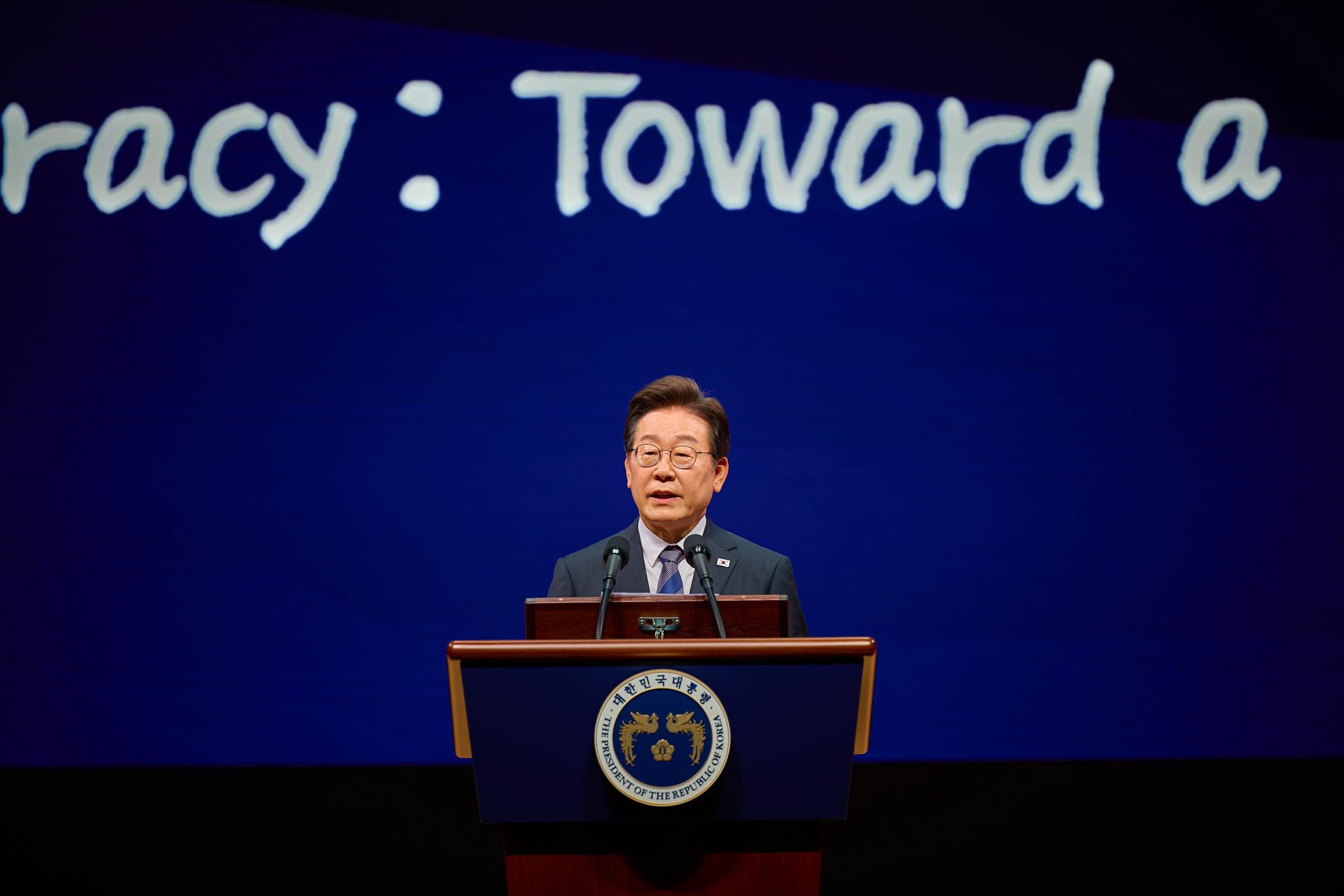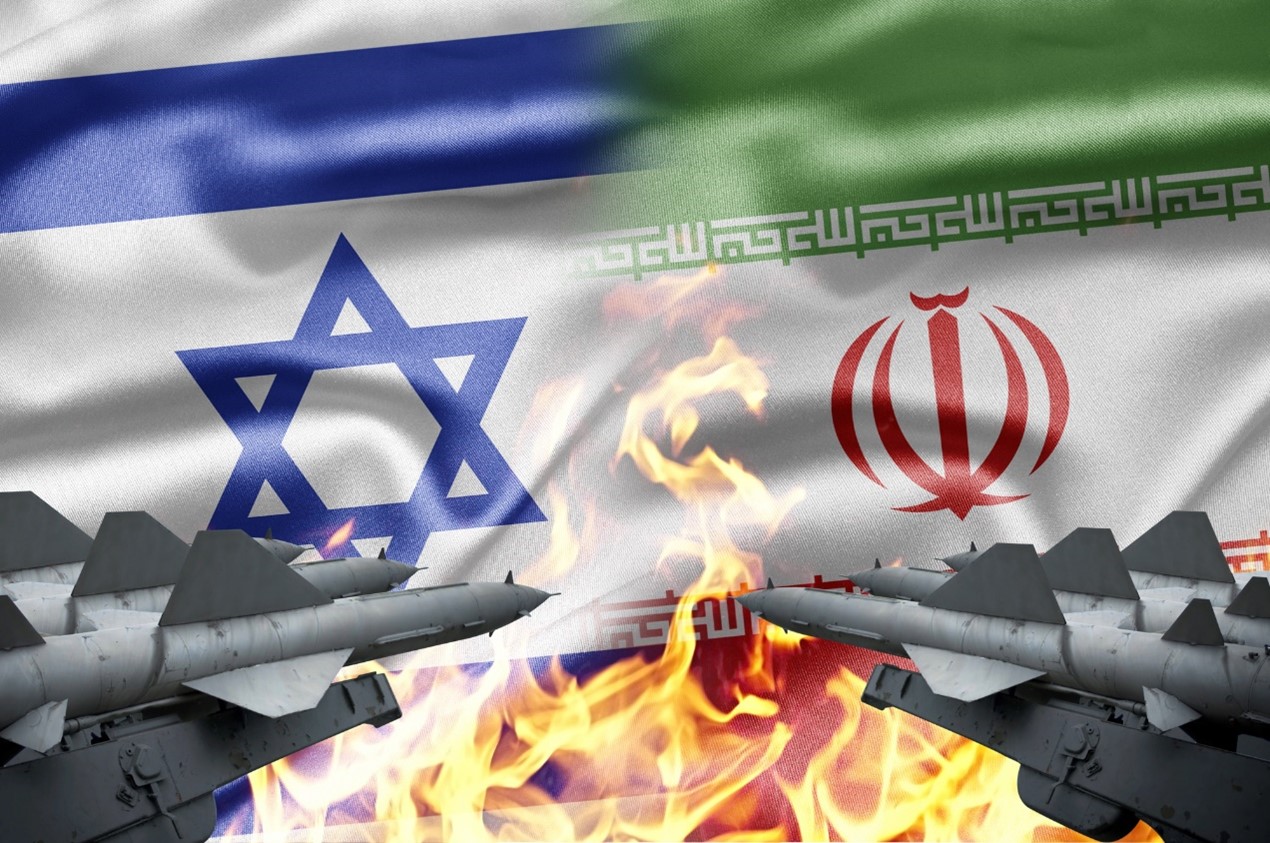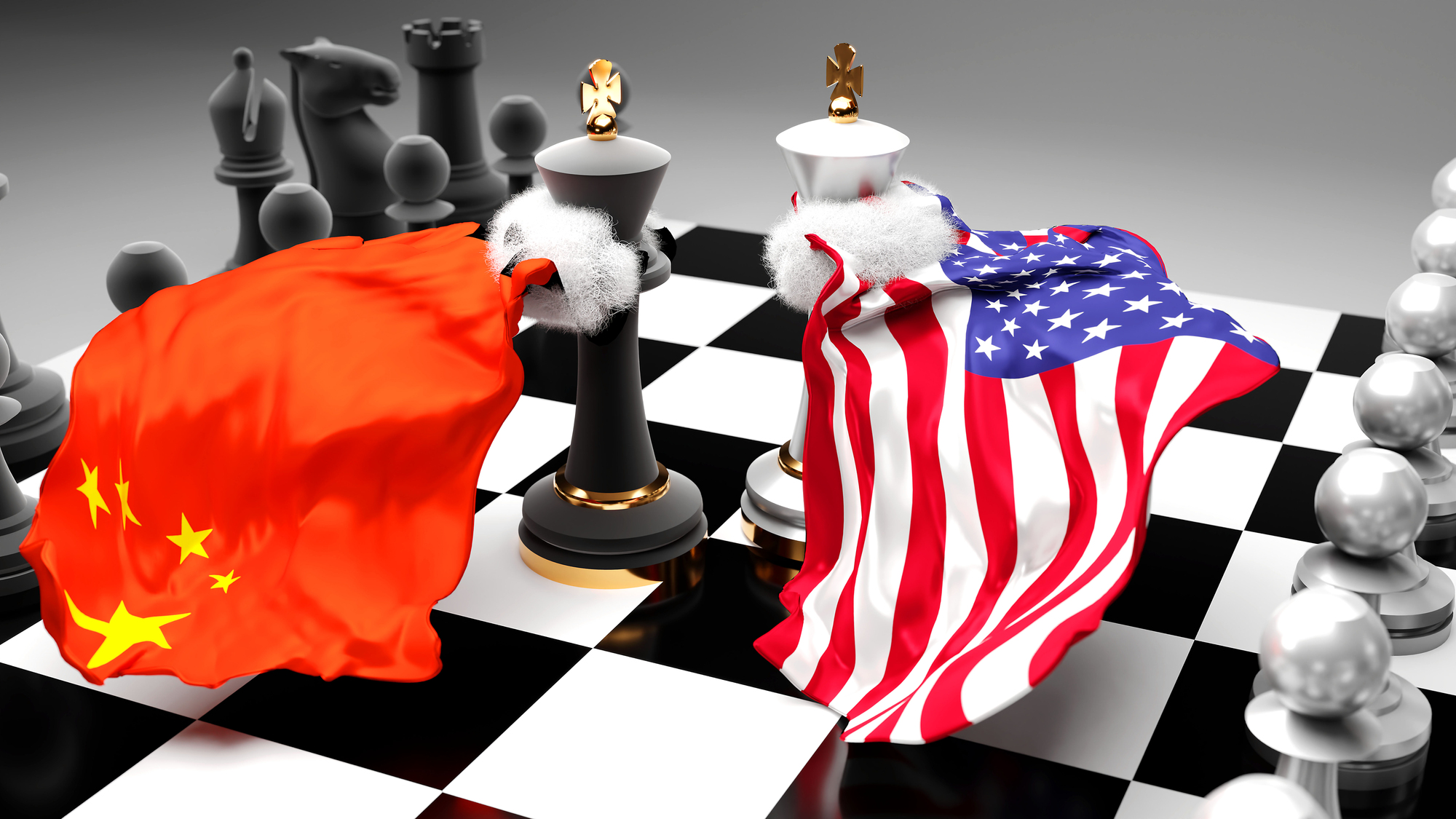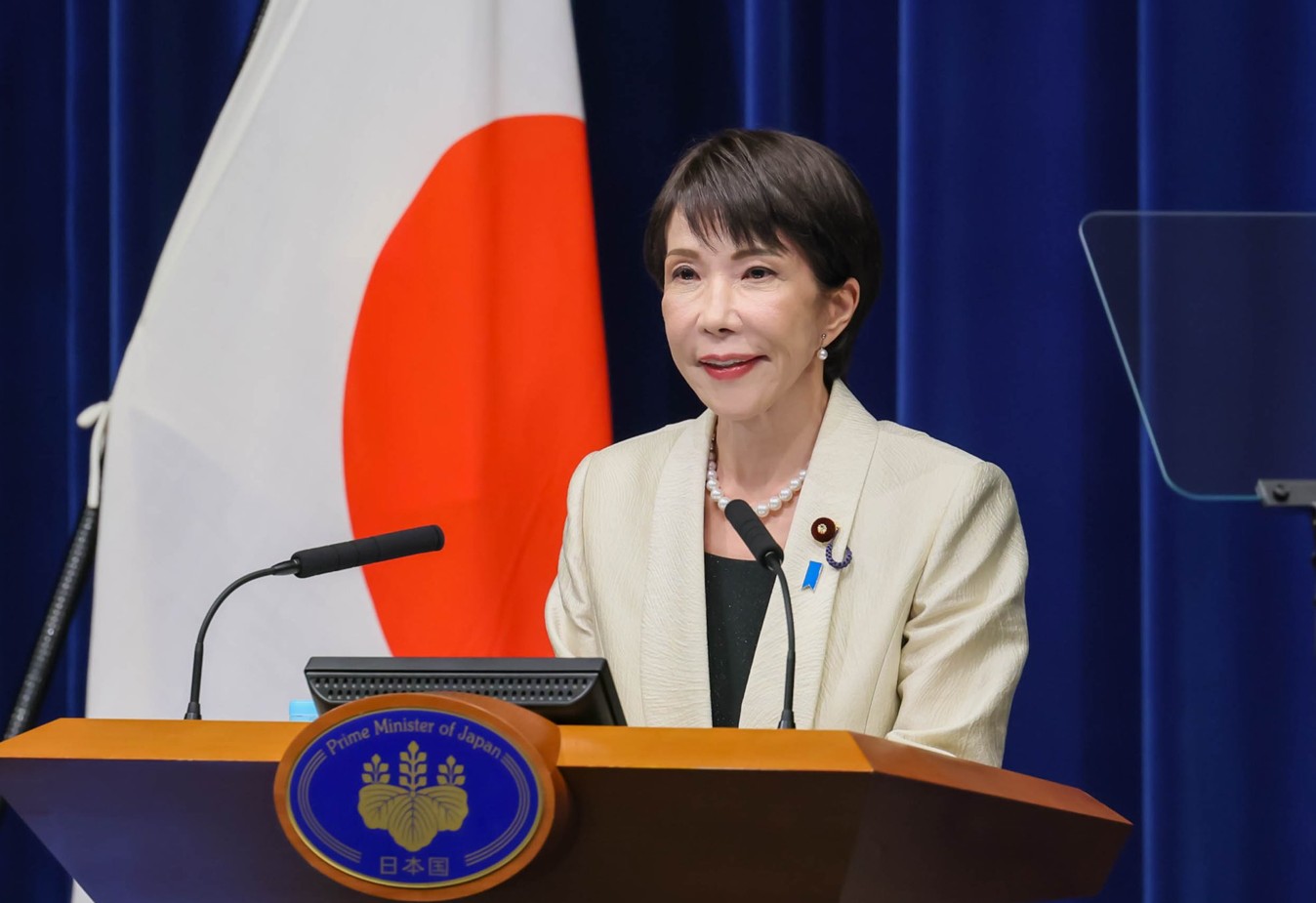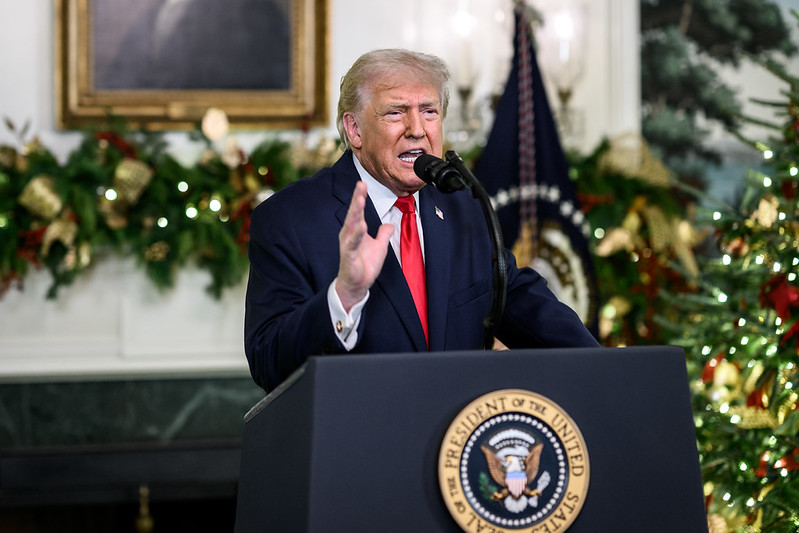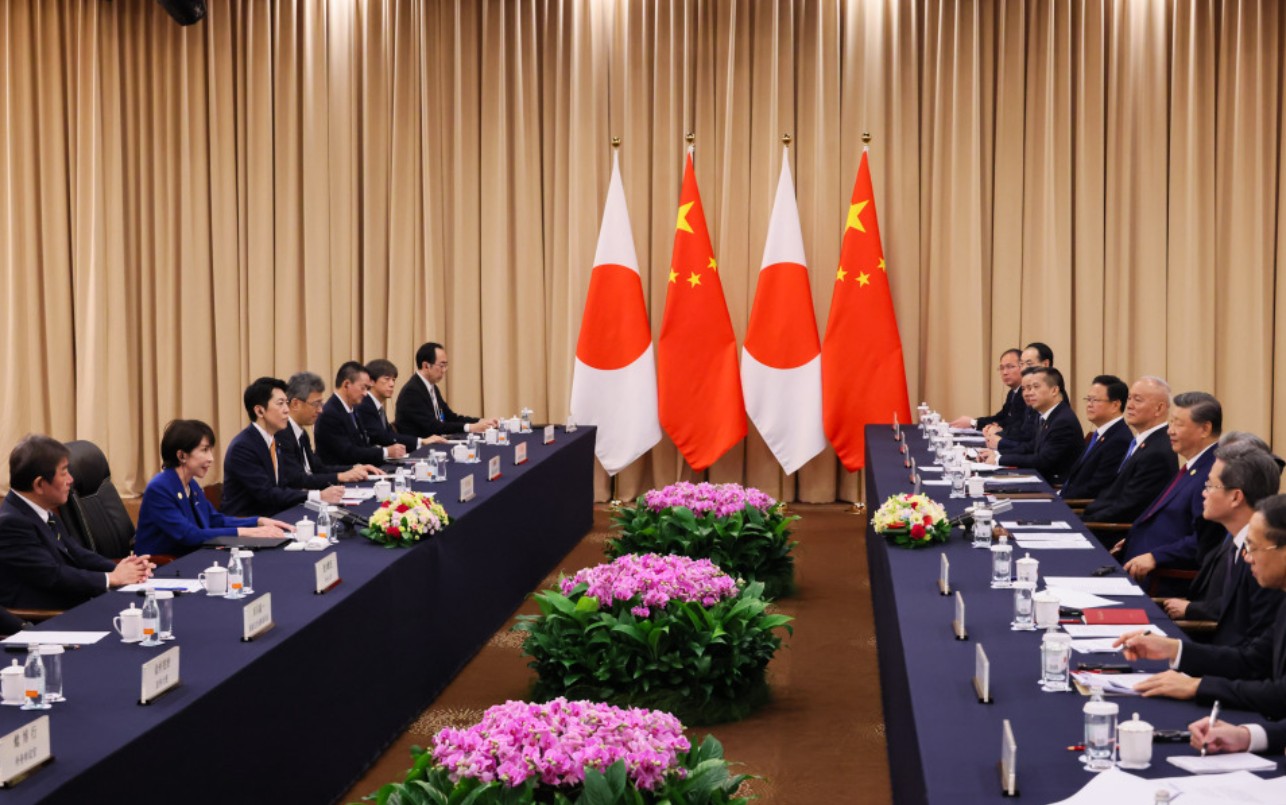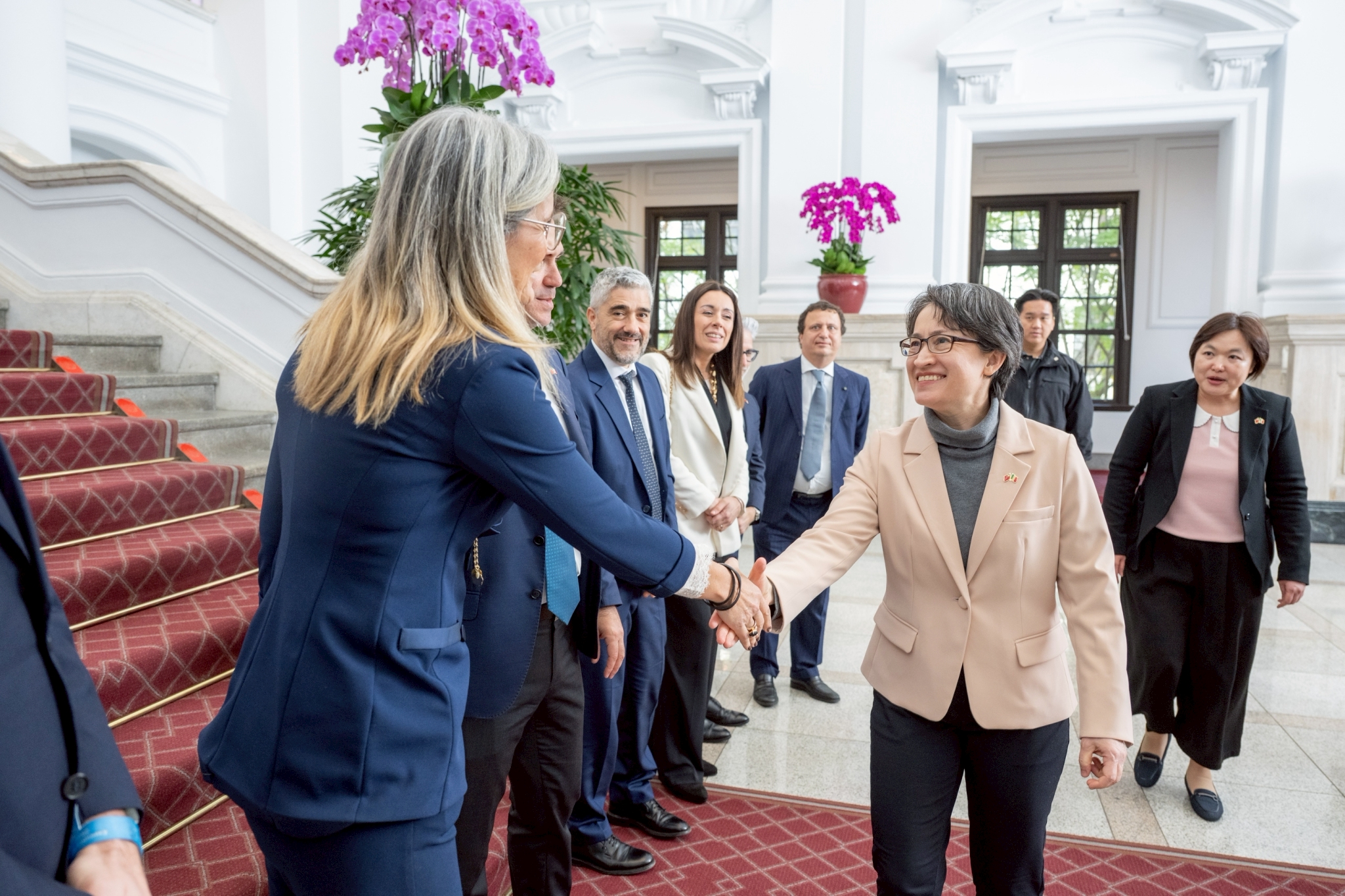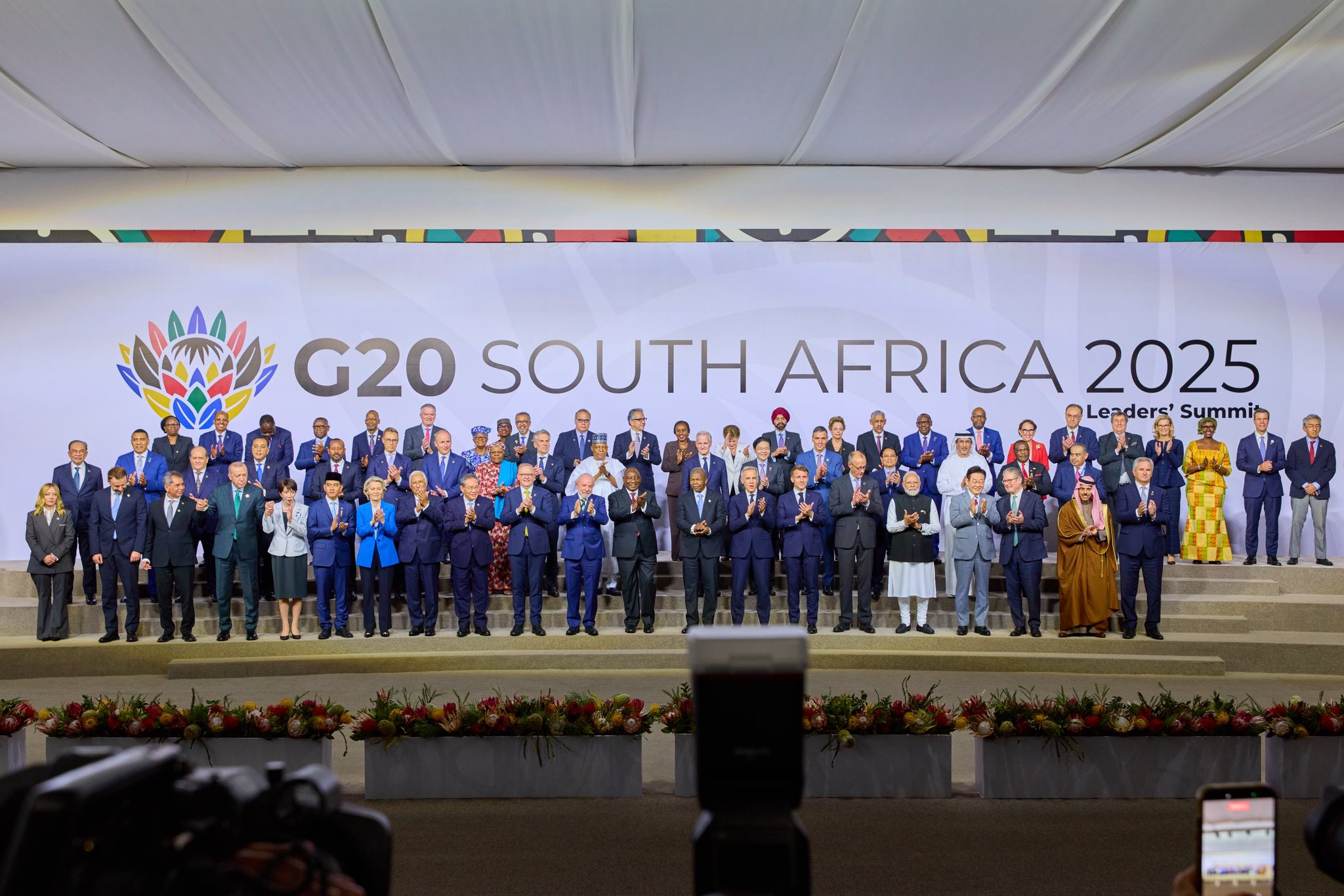From America First to the Global Landscape: The Impact of Trump’s Comeback on International Dynamics
Trump’s second term presents a complex mix of risks and opportunities for the international democratic alliance. For Taiwan, the path forward lies in decisively supporting democratic values and leveraging its strategic importance to contribute to regional stability. Picture source: Donald J. Trump, October 30, 2024, Facebook, https://www.facebook.com/photo.php?fbid=1122001805952305&set=pb.100044274887410.-2207520000&type=3&locale=zh_TW.
From America First to the Global Landscape: The Impact of Trump’s Comeback on International Dynamics
Prospects & Perspectives No. 6
By Hung-Jen Wang
As Donald Trump begins his second term as U.S. president, the international democratic alliance seems to be on board a speeding bus where everyone must fasten their seat belts to avoid potential dangers. While his four-year presidential term is constitutionally limited, Trump has suggested he is preparing for a “Trump era” that could last up to 12 years. This vision is backed by his relatively young and dynamic core team, including Vice President J.D. Vance (41), National Security Advisor Mike Waltz (51), Secretary of State Marco Rubio (54), Secretary of Defense Pete Hegseth (55), and Homeland Security Secretary Kristi Noem (54). These leaders symbolize a new Republican generation aiming to extend Trump’s policy impact well beyond a single term.
The implications of this extended timeline are profound. For democratic allies, including Taiwan, it underscores the importance of long-term strategic planning. Policymakers can no longer assume that they can “disembark” after four years; rather, they must prepare for potentially sustained engagement under the Trump administration’s influence.
Key Features of Trump’s Leadership and Priorities
Trump’s leadership style continues to be deeply personal and multifaceted, making it challenging for allies to predict his next moves. While he consults advisers on specific issues, major decisions ultimately rest with him. This approach reflects a mix of inspirations that have shaped his worldview and governing philosophy. For example, Trump has drawn from Richard Nixon’s use of tariffs to protect domestic industries, while emulating Ronald Reagan’s strategy of exploiting systemic weaknesses in adversaries like China to strengthen U.S. military power. Additionally, his leadership style carries elements of aggressive rhetoric and posturing, akin to the methods portrayed in The Apprentice and personified by Roy Cohn’s “attack, deny, declare victory” mantra.
Understanding this complex and layered leadership model requires democratic allies to reassess their assumptions about U.S. policies. Past diplomatic experiences or conventional frameworks may no longer suffice. Countries must develop a deeper and more nuanced understanding of the Trump administration’s strategic goals and decision-making processes.
Central to Trump’s second-term agenda is his unyielding focus on “America First.” This principle, while not a novel concept in international relations, now manifests in a particularly direct and transactional manner. Trump has stripped away previous administrations’ emphasis on democracy, human rights, and liberal values, choosing instead to focus on maximizing American economic gains, enhancing military strength, and undermining key competitors like China. This shift challenges the traditional narrative of U.S. global leadership and places economic pragmatism and strategic dominance at the forefront of American foreign policy.
Under this paradigm, U.S. allies are now expected to fend for themselves. The era of U.S. “strategic generosity” has come to an end, leaving European and Indo-Pacific allies scrambling to adapt. In Europe, for example, internal divisions — exacerbated by the ongoing war in Ukraine and Russia’s manipulative tactics — have weakened solidarity. Countries such as Hungary and Slovakia are showing signs of wavering in their support for Ukraine, while the European Union struggles to present a unified stance on China, with Germany and France pursuing more conciliatory approaches.
Major Asian Countries’ Internal Issues are Sources of Risk
The Indo-Pacific region faces similar challenges, as domestic instability in key countries undermines collective efforts to counterbalance China’s growing influence. Japanese Prime Minister Shigeru Ishiba, for example, is under significant political pressure as his ruling Liberal Democratic Party (LDP) lacks a majority in parliament, making governance increasingly difficult. The upcoming March budget proposal will face fierce opposition from rival parties, and any failure to pass it would not only hinder government operations but could also jeopardize Ishiba’s position as prime minister. Even if he survives this budgetary challenge, the July upper house elections pose another critical test. Should the LDP lose additional seats, Ishiba may be forced to resign. This political uncertainty complicates Japan’s ability to maintain consistent foreign and security policies.
In this unstable political environment, Japan faces immense challenges in addressing external pressures from the Trump administration and in determining its role in the U.S.-China rivalry. The Ishiba government’s precarious situation leaves Japan unable to fully focus on pressing regional issues, such as countering China’s economic and military threats or participating actively in Indo-Pacific multilateral cooperation. Japan’s political instability hinders the U.S.-led Indo-Pacific strategy and weakens its reliability as a partner for other allies.
Meanwhile, South Korea’s political situation is similarly concerning. President Yoon Suk-yeol is entangled in a fierce struggle against left-leaning political forces, which has significantly undermined his governance and even subjected him to legal investigations. This domestic turmoil has paralyzed South Korea’s foreign policy, leaving it unable to play an active role in the Indo-Pacific region. If Yoon’s government fails to stabilize the political landscape, South Korea could face even greater uncertainty in the coming months.
Of particular note is the potential fallout should Yoon’s administration collapse and be replaced by the opposition party, “The Minjoo Party of Korea,” led by Lee Jae-myung. Known for his pro-China and North Korea-friendly stance, Lee’s leadership would mark a significant shift in South Korea’s foreign policy, potentially weakening its alliances with the U.S. and other democratic nations. Such a turn of events could undermine the region’s collective efforts to counter China’s growing influence, further destabilizing the Indo-Pacific security architecture.
The political crises in Japan and South Korea pose serious challenges to the security and stability of the Indo-Pacific region. These two countries, historically key allies of the U.S., are now struggling with internal issues that hinder their ability to fully participate in regional cooperation. Their weakened positions could reduce the cohesion of the democratic alliance at a time when unity is critical in countering threats from China. This places additional pressure on other allies, such as Taiwan and Australia, to take on greater responsibility for regional stability.
Given this context, the U.S. must take a more active role in assisting Japan and South Korea to stabilize their domestic situations and foster bilateral cooperation. For Taiwan, it is crucial to closely monitor the political developments in these two countries and adopt flexible strategies in regional partnerships to fill potential strategic gaps. By doing so, Taiwan can not only safeguard its own security but also contribute to the broader stability of the Indo-Pacific region.
Turning Risks into Opportunities
Despite the risks, the evolving international dynamics present significant opportunities for democratic allies. The strategic rivalry between the U.S. and China has become increasingly pronounced, with the Trump administration adopting a clear and confrontational stance. The imposition of stricter trade tariffs, expanded restrictions on high-tech exports to China, and increased investments in U.S. defense capabilities highlight a deliberate effort to weaken China’s global standing. This approach reflects the administration’s belief that the Pacific is not big enough for both nations to coexist as equals, contrary to Beijing’s rhetoric.
For Taiwan and other democratic allies, this rivalry should be viewed not as a conflict to avoid but as an opportunity to align more closely with the U.S. By fully committing to the democratic alliance led by the U.S., smaller countries can strengthen their security, amplify their voices on the global stage, and help create a more resilient international order. Taiwan, in particular, stands to benefit from a clear and decisive alignment with U.S. interests, as it navigates the challenges posed by China’s assertive policies.
Taiwan’s Strategic Position in the New Era
Taiwan’s role in the Indo-Pacific is increasingly vital. To secure its position amid the evolving U.S.-China rivalry, Taiwan must strengthen its ties with the U.S. through consistent engagement and proactive diplomacy. Enhancing its national resilience — both in defense capabilities and economic stability — will be crucial to maintaining leverage and ensuring sustainable development. At the same time, Taiwan must remain steadfast in its commitment to sovereignty, resisting external pressures that could undermine its international standing.
The broader implications of U.S.-China tensions also require Taiwan to adopt a forward-looking approach. By aligning its strategies with those of the U.S. and other democratic countries, Taiwan can position itself as a key player in shaping a secure and prosperous Indo-Pacific region. This approach not only reinforces Taiwan’s own security but also contributes to the collective strength of the democratic alliance.
Trump’s second term presents a complex mix of risks and opportunities for the international democratic alliance. For Taiwan, the path forward lies in decisively supporting democratic values and leveraging its strategic importance to contribute to regional stability. By recognizing the shifting dynamics of U.S.-China relations and aligning itself with like-minded nations, Taiwan can navigate this turbulent era with greater confidence and resilience, turning challenges into opportunities for long-term success.
(Dr. Hung-Jen Wang is Professor of Political Science, National Cheng Kung University; Executive Director, INPR.)


